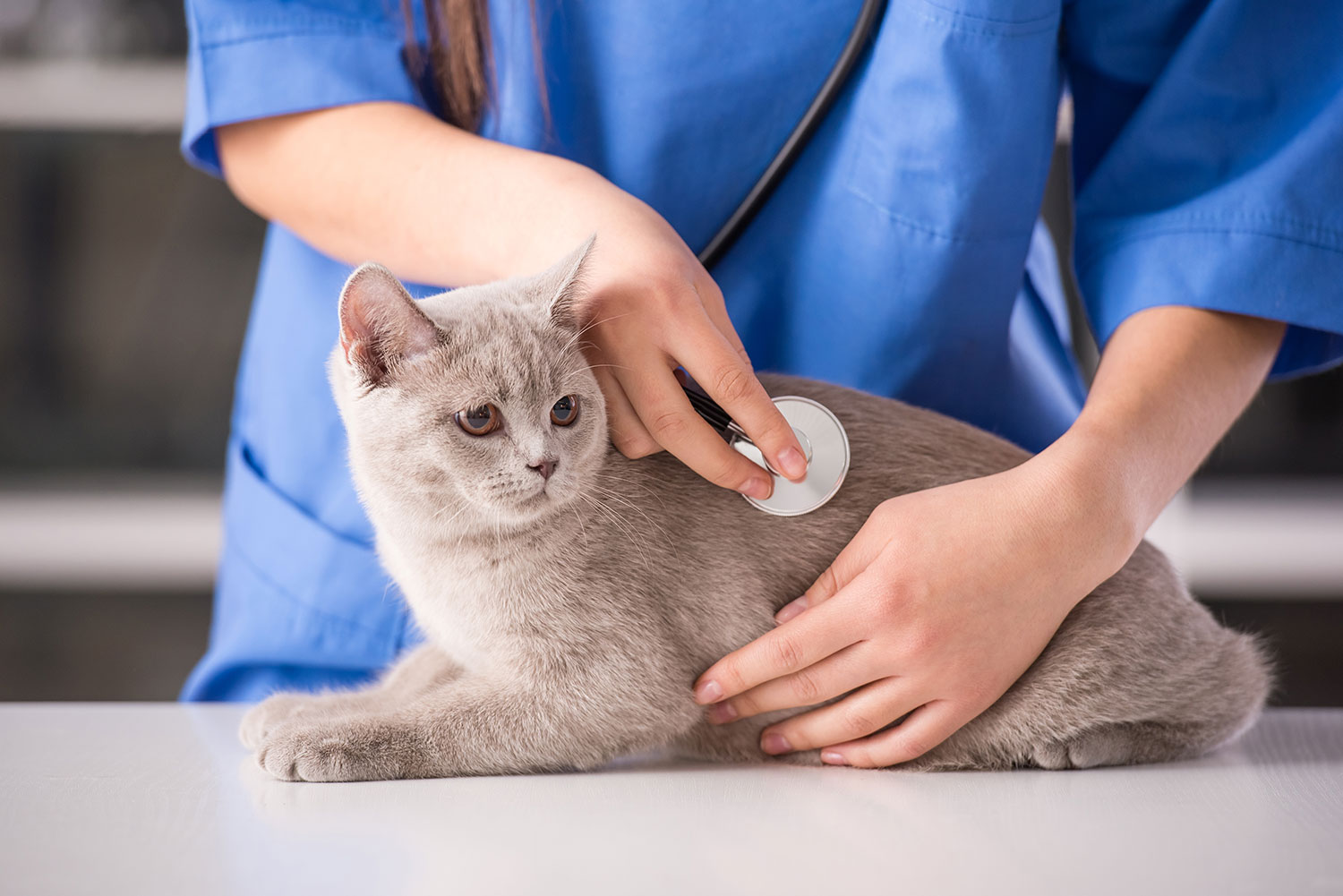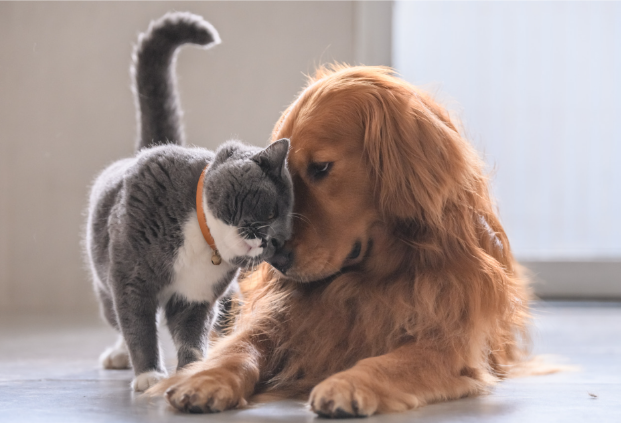Treatment

Feline Immunodeficiency Virus, also known as FIV, is an incurable-pathological disease for cats. However, there are treatments available for your pets to help them fight off the secondary infections of FIV.
Part of the FIV treatment is efficient vet and home attention. This care includes feeding them a healthy and balanced diet, regular checkups from your FIV cat doctor, disinfecting your pet area, and having them spayed and neutered to prevent transmission.
Shedding
Cats with FIV tend to transmit the feline immunodeficiency virus through their saliva. The likelihood of transmission is very high when an infected cat has caused a bite wound to another uninfected feline. It happens as the virus starts living in the sputum of an FIV-infected cat.
However, it is worth noting that sharing feeding bowls or cat litter are less likely to cause an FIV transmission. There is a low chance for other cats to be contaminated with the virus unless they obtain a bite wound from a suspected FIV-positive cat.
Treatment At The Vet
Your feline pet may start to show symptoms such as recurring fever, loss of appetite, mouth and gums inflammation, diarrhea, poor coat form, eye hitches, weight loss, or even changes in behavior. When these signs begin to persist, it is best to bring them to the animal clinic and have them checked through various vet exams.
If the results show that your cat is FIV-positive, you and your vet may start planning the set of treatments best for your feline care.
Antibiotic drugs may be part of the plan to help treat the secondary infections your cat may obtain after contracting the FIV. As FIV merely weakens and deteriorates a feline’s immune system, the antiviral medications and other drugs may aid the cat’s immunity in fighting off other viral diseases.
Performing a vet-administered spaying or neutering operation on your unneutered cat may also be an effective way to lessen the chance of virus transmission.
In addition to antiviral medications and neutering, consistent vet checkups are also important when caring for an FIV cat.
Regular Vet Visits
Visiting the vet clinic every six months is a must if caring for your FIV cat. During the wellness checkup, the vet will execute diagnostic tests such as physical exams, a CBC or complete blood count, urine analysis, and an antitoxin chemical analysis. These tests are performed in a periodic routine, at most, to check and diagnose any diseases caused by the cat’s deteriorated immune system.
FIV-infected cats that developed severe secondary illness may require more frequent and prolonged courses of concentrated treatments to avoid secondary infections from persisting.
Spaying and Neutering
Spaying or neutering your cat has a significant effect on lowering the risk of contamination. It is also a big help on the treatment course itself. Infected cats tend to show more aggression which may result in catfights and bite lesions.
For the safety of other cats in a household or a neighborhood at large, vets will require unneutered felines to be spayed and neutered.
Antiviral medications
Most vets will recommend administering different antiviral medications to reduce the virus inside your cat’s body. People with Human Immunodeficiency Virus or HIV also use some anti-FIV drugs as antibiotic drugs for HIV treatment.
However, many antiviral medications can manifest contradicting effects on cats. Your vet may perform a CBC test more than usual when cats start taking antiviral medicines as they can cause bone marrow suppression. It is best to talk with your veterinarian to determine the right and effective antiviral drugs for your cat.
Zidovudine, also known as AZT, is one of the commonly used antiviral medicines in vet clinics. This antiviral drug can treat cats with secondary infections from the feline immunodeficiency virus.
AZT is usually in tablet form; cats can only take it upon the prescription of the attending veterinarian. Although AZT drugs can help FIV-infected cats, some of their benefits are uncertain. Some organizations considered these benefits to lag far behind the neutralizing side effects.
FIV cats may also suffer from anemia and neutropenia—as caused by decreasing numbers of a type of white blood cell called neutrophils, during their medication. They may also encounter live and gastrointestinal diseases. Erythropoietin, an artificial hormone supplement, may be prescribed to aid in increasing their red blood cell or RBC count without triggering their virus loads.
Other medications
Aside from the antiviral medications, your veterinarian will also suggest additional treatments to help your cat’s weakened immune system defend its body from other secondary infections.
One of these medications is the Lymphocyte T-Cell Immunomodulator or LTCI, a drug administration-accepted cure for FIV or FeLV (feline leukemia virus) through injection. It may function the same as Erythropoietin in increasing the red blood cells count of anemic cats. LTCI is a robust modulator of the production and function of lymphocytes which help the immune system battle infections from diseases.
As FIV strikes your feline’s body, its immune system weakens and becomes susceptible to inferior viral and bacterial ailments that may be severe and life-threatening.
With the right antiviral or antibiotic medications, secondary illness can be suppressed and eventually improve your cat’s health status. Closely monitoring your cat is essential because some minor side effects of administering antiviral meds and antibiotics may include vomiting, diarrhea, and loss of appetite.
At Home Care
Another vital treatment for cats with FIV infection is supportive care at home. Although some FIV-positive pets may not manifest signs of infection even after diagnosis, it is essential to provide them with good home care. It is to ensure that your cat can live a long, healthy life.
The essential parts of a home care treatment include feeding your cat healthy and well-balanced meals. Restraining the pests-causing viruses and confining them inside the house as long as possible also form part of the effective home treatment.
Diet
Nutrients are always vital for viral defense and recovery. Feeding your cat meals high in nutrients can help in their immunity boost against infection. Avoid giving them raw foods (meat, eggs, unpasteurized dairy products) to lessen contact with disease-causing parasites and bacteria: Salmonella, E. coli, Clostridium, and perfringens. Giving them commercial cat food can be better. You can also cook homemade meals for them.
Keep Your Cat Indoors
Confining your cat indoors is another essential phase of providing home care. FIV-infected cats can transmit the disease to other cats if they are not kept inside. Aside from the potential spreading of the virus, the weakened immune system of FIV cats can contract other viral diseases if allowed to roam outside.
In place of outdoor access, you can create an additional enclosure at home for your cat.
Members of the animal welfare community have been discussing the toleration of FIV-positive cats being outdoors. The community has widely recognized that only those cats that have undergone spaying or neutering can be allowed outside and be with other cats.
On the other hand, there is also a debate on community or feral cats diagnosed with FIV as to whether or not they should be confined back into a cluster.
However, according to some animal organizations, community and pet cats have equally low rates of disease transmission. Many associations consider the community cats to have the ability to live a healthy life outdoors as part of different protection programs.
Flea, Worm, And Other Parasite Control
Controlling or eliminating parasites in your cat’s body is also essential in providing home care. Your cat’s deteriorated immune system, contamination by fleas, worms, and other parasitic organisms, can be very detrimental and add compromise to its immune functions. Parasites can expose more of a cat’s body to harmful diseases. For more information on parasitic worms in felines, visit Worms.pet.
Flea, Worm, And Other Parasite Control
After your cat’s diagnosis, your doctor will advise other effective medications to use at home to cure illnesses your cat may contract secondary to FIV. Your vet may order the administration of antifungal or antibiotic medicines, anti-nausea drugs, or other drugs necessary to treat diseases.
Note that the set of medications may vary according to the status of each cat’s health. Even if your pet does not seem to be sick, ensure to follow your vet’s advice and continue and finish your cat’s medication.
Top 5 FAQs
Many studies have shown that FIV diagnostic examinations that detect antibodies against FIV — such as SNAP tests — have a sensitivity rate of 98 to 100%.
As soon as your cat manifests symptoms of a weakened immune system, take them to the vet clinic. Also, wellness checkups for FIV cats must be scheduled and done at least every six months. Vets will perform detailed physical examinations and other diagnostic procedures.
Apart from cats living in a crowded alley, FIV is more likely to infect male outdoor cats aged 5 to 10 years.
For effective sick pet care at home, it is essential to feed them a healthy and well-balanced diet and avoid exposure to stressors. These include giving them nutritious home-cooked meals and making them comfortable in all aspects at home.
FIV only becomes highly contagious when an infected cat causes a bite lesion to another uninfected cat. It is because FIV cats’ saliva contains FIV. Even if the virus cannot spread through shared cat bowls, litter, or toys, it is vital to regularly clean and disinfect these items.
Other Frequently Asked Questions
The feline immunodeficiency virus attacks a cat’s immune system and leaves it prone to potentially life-threatening diseases. FIV cats can live an average life. However, every pet owner should have a treatment plan for the illness that may occur secondary to the FIV. Proper care is to ensure your cat’s health.
Performing a vet-administered spaying or neutering operation in cats can significantly lessen the chance of FIV transmission. Spayed and neutered cats are less aggressive, which may reduce the risks of catfights and bite wounds from an FIV cat’s saliva.




